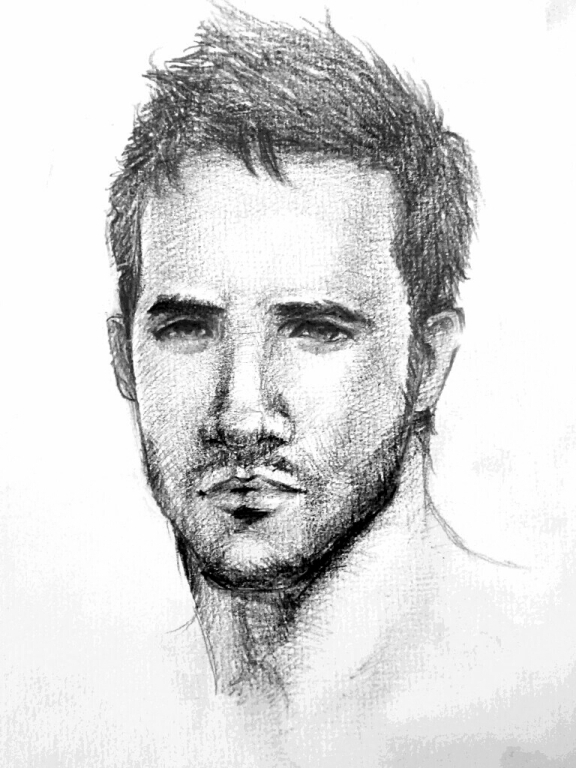It’s a tough time to be a guy.
The old, stale notions of being “macho” are looking a little worn at the edges, a bit outmoded, yet the general idea is that we’re still supposed to be strong, assertive and self-reliant. Like the lone cowboy. Or Superman.
What happens when the knight in shining armor takes off his gleaming breastplate and helmet and is just…a man. Maybe not even a handsome or charming one, at that.
Almost nothing in our general culture supports a new, evolved masculinity, and we’re still obsessed with surface rather than depth. Hypermacho is sadly one-dimensional. Yet if guys are too soft, we’re “wimps.” If we openly appreciate beauty, we must be gay. Other than the Christian and mainstream religion camps, if we’re spiritual we’re lumped with the New Agers (whether we belong there or not) and again viewed as somewhat soft.
And though it is unspoken, soft is equated with weak, which rubs against the deeply ingrained cultural programming from both men and women about how men should be.
It’s not just that women generally want men to be more tender-hearted, compassionate and feeling—in a word, relational—some deep part of us knows that we need to be that way too. Despite outward displays of male bonding and camaraderie, on a deeper level, most guys are pretty alone. Much as we hate to admit it, we’re fairly alienated from ourselves. Lonely, too.
Being “relational” enables us to become less alone and more connected to the world in a meaningful way. Sounds good. Yet at its core, being relational equates with vulnerable, which most men, either directly or indirectly through cultural modeling, were taught at a very young age that we are not supposed to be. It’s right there next to “soft.”
In the bigger picture, society is still largely stuck in an old polarization of opposites—the “men are from Mars, women are from Venus” kind of thing. It’s a convenient categorization, and while as genders we are different, it is also limiting.
“Our current notion of masculinity is a construct based primarily on personality attributes that portray a more outward and probing orientation, as with the male genitals. The masculine is inclined toward qualities that display assertiveness and forward direction; to seek linear locomotion and sense of progress; competitive and/or territorial; to frame challenges and opportunities outside of oneself; value rational thought and processes.
Our perceptions about femininity are mainly opposite, embodying a more receptive and inwards orientation (as with the female genitalia). We associate the feminine with openness and inviting cooperation; relationally oriented; intuitive and aware of what is present (though perhaps not always seen or named); a celebrant of beauty.
The masculine tends toward sharper distinctions and more rigid, defined boundaries; for the feminine, boundaries tend to be more flexible and permeable which, in turn, blurs distinctions and embraces similarities (in line with the overall tendency towards receptivity and communion). By their very nature, the so-called feminine traits are more attuned to relationship, process, and harmony. For men, as we cultivate more of these relational qualities, we then enhance our ability for resonance, feeling, cooperation and intimacy… and wholeness.”
(Excerpted from The Bones And Breath by L. R. Heartsong)
Those of us who are conscious men—or trying to be—are looking to see both sides of the coin, to somehow hold the tension of opposites. We sense there’s a lot more commonality in the heart than in our relatively surface differences (the majority of which are cultural and learned).
Yet when we dig down toward those depths, a bunch of shadowy fears, doubts and prickly questions are wriggling under our manly exterior. Am I good enough? Do I measure up—including the size of my “manroot”…? And beyond the labels of work and ego identity, who am I really?
If we step back for a wider perspective, there’s an ongoing issue about our lack of role models who embody a compassionate, evolved masculinity—the wise mentors and elders who understand that every man has a unique gift to offer his tribe or community (which itself has largely crumbled). Thus the question at our core remains, what does it mean to be a man? And how does it relate to having a tender, compassionate heart? Or being connected to the soul of the world?
What society and mainstream media offers for “masculinity” is a packaged, one-dimensional, one-size-fits-all design—a cheap, mass-produced model that limits us to mediocrity. Deep down inside, many of us know we are meant for something better, far more powerful and alluring.
Men can be strong, directed, passionate, as well as tender and soft. Despite that it goes contrary to what most of us absorbed about “manhood,” we must be vulnerable and open, difficult as that is sometimes. (Okay, often.) We can be relational—feeling—just as we can embrace being flexible, intuitive, spiritual and celebrants of beauty.
A compassionate, feeling heart doesn’t make us less a man, it makes us more of one.
It’s time to collectively evolve the masculine. That lone cowboy is tired and, well, lonely. Let’s be poets, artists, earth-stewards and open-hearted lovers instead.
Detached, analytical thinking about the world’s troubles does not inspire like feeling does. It is when we feel a connection to something—person, place, thing—that we are moved to protect it. Really, it is the ability to feel—deeply—and the ability to express those emotions that rests at the heart of a new and conscious man.
If only this was easy. Things tend to change slowly in society. Evolution always happens at the fringes, never in the status quo, and mostly each of us is alone on our personal journey to becoming a better, heart-centered man.
We need vision and positive change in a chaotic world, yes, and men can be highly effective at that, but I offer that what the world most needs right now is a man’s compassionate heart.
Heart-centered men, step forward.
Relephant:
A Call to the Sacred Masculine: Ten Daring Invitations from the Divine Feminine.
Author: L. R. Heartsong
Editor: Catherine Monkman
Photo: namitokiwa/Deviantart







Read 0 comments and reply